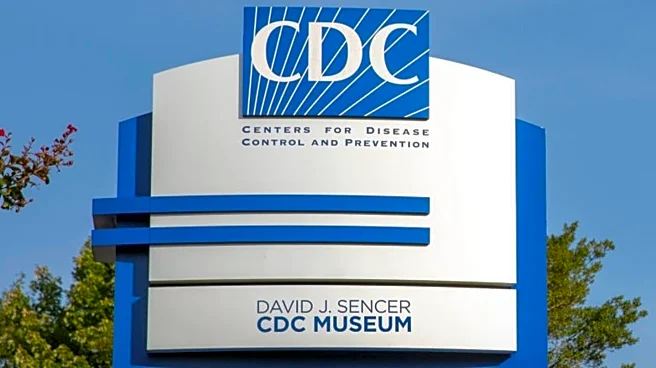What's Happening?
The Christ Hospital in Cincinnati has reported two separate cases of Legionnaires’ disease over the past six weeks. The hospital, in collaboration with local and state health departments, is conducting extensive water testing at its main campus to identify
any potential sources of the Legionella bacteria. The hospital has also installed filters on faucets and showers as a precautionary measure. Legionnaires’ disease, a severe form of pneumonia, is caused by inhaling water droplets contaminated with Legionella bacteria, which are commonly found in natural and man-made water systems. The hospital maintains that there is no current indication that its water is unsafe, and the risk to patients, visitors, and staff is considered low.
Why It's Important?
The confirmation of Legionnaires’ disease cases at a major hospital raises significant public health concerns, particularly regarding the safety of water systems in healthcare facilities. The hospital's proactive measures to test and treat its water systems underscore the importance of maintaining rigorous safety protocols to prevent the spread of waterborne diseases. This situation highlights the need for continuous monitoring and swift response to potential health threats in public institutions. The outcome of these tests could influence public confidence in the hospital's safety standards and impact its reputation. Additionally, it serves as a reminder of the critical role of health departments in safeguarding public health through timely interventions.
What's Next?
The Christ Hospital will continue its environmental testing to ensure the safety of its water systems. The results of these tests will determine if further actions are necessary to address the presence of Legionella bacteria. Health authorities, including the Cincinnati Health Department and the Ohio Department of Health, will likely monitor the situation closely and may issue additional guidelines or recommendations based on the findings. The hospital's ongoing communication with the public will be crucial in maintaining transparency and trust. Stakeholders, including patients and healthcare workers, will be keenly interested in the outcomes of these efforts and any subsequent measures taken to prevent future occurrences.
















